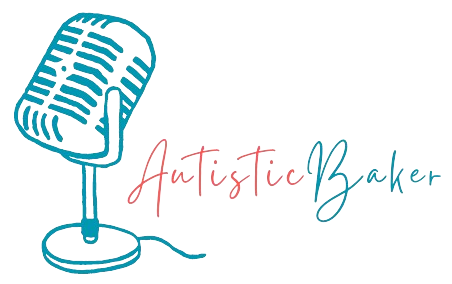Your little one stepping into kindergarten with the confidence to make friends and handle group tasks. Early social skills shape how kids connect with others for life. They include sharing toys, showing empathy, and solving small fights. Daycare acts as a perfect spot for kids to practice these skills. Through play and group fun, children build bonds that last. This guide shows how daycare in Walpole, MA activities help your child grow socially strong.
The Foundation: Understanding Social Milestones in the Daycare Setting
Kids aged two to five hit key social steps in daycare. They move from playing alone to teaming up with friends. Parents can spot these changes and feel good about progress.
Parallel Play to Cooperative Play: Developmental Stages
Young kids often start with solitary play. They focus on their own toys without much notice of others. Then comes parallel play, where they sit near a friend but play the same way alone.
Next, associative play kicks in. Children share space and toys but without a clear plan. Finally, cooperative play arrives around age four. Here, they work together on goals, like building a tower as a team.
In daycare, you see this in block corners or sand tables. A teacher might nudge kids from side-by-side stacking to joint designs. This path builds comfort with peers step by step.
Identifying Key Social Competencies for School Readiness
Social skills go beyond letters and numbers for kindergarten. Taking turns stops chaos in line. Following group rules helps during lessons.
Kids learn to voice needs without yelling. They practice saying “I want a turn” instead of grabbing. Studies show these traits link to better grades later. One report from the American Academy of Pediatrics notes that strong social ties cut behavior issues by half in early school years.
Daycare drills these through daily routines. Parents watch for signs like a child joining games without prompts.
The Educator’s Role in Facilitating Peer Interaction
Trained staff do more than watch. They spot shy kids and pair them gently with outgoing ones. A simple invite to join a puzzle can spark a bond.
Teachers use questions to guide talks. “What do you like about this game?” draws out ideas. They step in for fair play but let kids lead solutions.
This scaffolding builds real skills. It turns daycare into a safe space for trial and error in friendships.
Structured Activities Designed for Skill Building
High-quality daycares plan activities that force kids to interact. These sessions teach rules and teamwork in fun ways. They fit right into the daily schedule and show quick gains.
Group Story Time and Puppet Shows
Story time gathers everyone on the rug. Kids listen together, building focus as a group. Puppets add drama, letting children guess feelings of characters.
Turn-taking happens when kids answer questions. One child shares a thought, then passes to the next. This grows patience and listening ears.
Try this at home: After daycare pickup, ask, “How do you think the bear felt when he lost his honey?” It ties back to empathy from the session. Shared laughs during tales strengthen class ties.
Circle Time Games Requiring Turn-Taking (e.g., “Pass the Ball”)
Circle games like pass the ball teach waiting fast. A soft ball rolls around, and each kid says their name before passing. Rules keep it fair and exciting.
This curbs grabbing impulses. Kids learn to cheer for others’ turns too. In just ten minutes, they grasp social flow.
Daycares add songs to these games. Clapping rhythms reinforce beats of cooperation. Parents see calmer kids at dinner table chats.
Collaborative Art Projects
Art time with shared supplies pushes negotiation. A big paper mural needs crayons from the center pile. One child picks red, another asks for blue next.
They compromise on designs, like adding stars to a house drawing. Glue sticks run low, so trading happens naturally. This mirrors real-life sharing.
Finished pieces hang on walls, sparking pride in group work. Kids point and say, “I helped with that part.” It boosts a sense of belonging.
Unstructured Play: The Engine of Spontaneous Social Learning
Free play lets kids choose what to do. No set rules mean real challenges arise. This raw time hones skills through trial.
It often trumps planned activities for deep learning. Kids solve issues on their own terms. Daycare yards buzz with these moments.
Mastering Conflict Resolution During Free Play
Toy fights pop up often in free time. Two kids tug a truck, voices rising. A good teacher kneels and suggests “I” statements. “I feel sad when you pull it away.”
Instead of grabbing the toy, they talk it out. One child offers to drive first, then switch. This teaches calm fixes over anger.
Picture this: Alex and Mia argue over blocks. The teacher asks, “What can you build together?” They end up with a shared castle. Such scenes build trust daily.
Imaginative Play and Role-Taking Scenarios
Pretend play opens doors to other views. A child acts as a doctor, bandaging a “hurt” friend. They swap roles, feeling what it’s like to need help.
This grows empathy, called theory of mind. Kids guess peers’ thoughts in the game. House play adds family roles, teaching care.
In daycare corners with dress-up clothes, stories unfold. One leads as chef, others follow as eaters. It sparks kindness without lectures.
Navigating Playground Dynamics and Group Games
Outdoor tag involves chases and teams. Kids call out to include a slow runner. Fort building needs leaders who assign jobs fairly.
Exclusion hurts, but teachers guide inclusion. “How can we make room for Sam?” turns groups bigger. These dynamics mimic life lessons.
Larger games like hide-and-seek teach following leads. Wins and losses build grace. Sunny days fill with shouts of joy and fair calls.
Fostering Empathy and Emotional Intelligence
Emotions drive social ties. Daycare helps kids name and handle feelings. This link turns playmates into true friends.
Strong emotional smarts predict happy lives. Kids who read faces avoid big blowups. Activities make it stick.
Using Emotion Charades and Feeling Charts
Charades has kids act out mad or glad faces. Peers guess and mimic back. It builds a shared feeling language.
Charts on walls show faces with words like “frustrated” or “excited.” Teachers point during upsets. “You look concerned—want to talk?”
Parents reinforce this. At bedtime, say, “What made you delighted today?” It cements daycare words at home. Simple games like this last years.
Modeling Kindness and Prosocial Behavior
Teachers show help in action. One comforts a crying child with a hug and words. Kids watch and copy, learning by sight.
This observational pull works wonders. A study from Yale shows kids mimic kind acts fast. No need for big talks—just daily examples.
When a peer spills paint, another grabs a towel. Praised gently, it spreads. Daycare models turn watchers into doers.
Incorporating “Helping Hands” Activities
Tasks like coat help build giving habits. A child zips a friend’s jacket before recess. Or they aid a fallen playmate up.
Teachers pair buddies for these. “Use your helping hands to stack chairs together.” It feels good to assist.
Altruism grows here. Kids smile wider after aiding. This sets patterns for school and beyond.
Parent Partnership: Extending Daycare Learnings at Home
Daycare starts the work, but home seals it. Parents bridge the gap with easy steps. Team up for best results.
Consistency matters. Mixed messages confuse kids. Align home chats with daycare ways.
Debriefing Daily Interactions (Beyond “What did you do?”)
Skip vague questions after pickup. Ask, “Tell me about sharing the swing with Liam.” It pulls out details.
Or, “How did you feel when Zoe took the puzzle piece?” Listen without fixing. This revives the day’s social wins.
Even short talks build reflection. Kids replay moments, strengthening lessons. Make it a routine over snacks.
Hosting Playdates Focused on Structured Sharing
Plan playdates with a start activity. Bake cookies together before toy time. It eases into sharing.
Set timers for turns on bikes. “Five minutes each on the swing.” Watch conflicts, then guide like teachers.
End with thanks rounds. “What was fun about playing with Alex?” These dates mimic daycare bonds at home.
Reinforcing Positive Language Used by Caregivers
Echo daycare words daily. If they say “Use kind words,” repeat it during sibling spats. “Tell your brother how you feel.”
Stick to “I” phrases over blame. It creates one voice across spots. Kids thrive on this steady guide.
Share notes with teachers on home wins. It loops everyone in for progress.
Conclusion: The Lasting Legacy of Daycare Socialization
Daycare builds the base for social success. Structured games teach turns and rules. Free play handles real scraps and joys.
Mix them for a solid foundation. Your child gains tools for school friends and life hurdles. Early investments pay off big.
Watch your kid blossom in groups. Choose a daycare with play focus. Start today—those small steps lead to confident futures.




